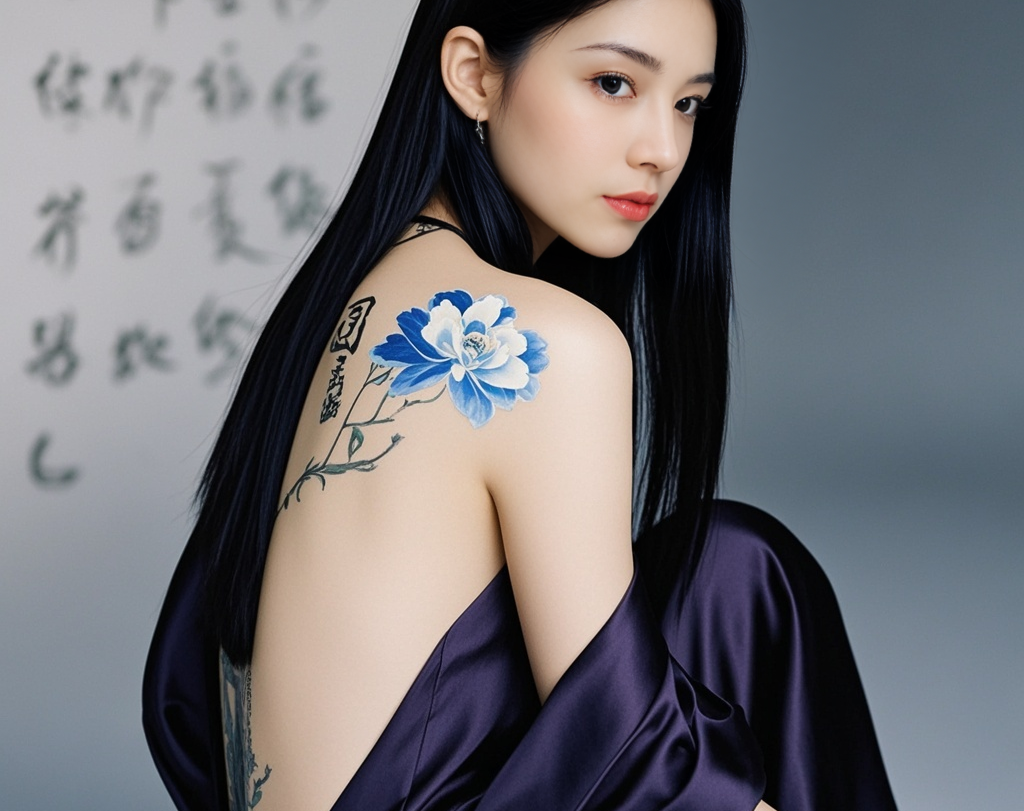 1. Direct Meaning and Breakdown of the Kanji "賦" (Fu)
1. Direct Meaning and Breakdown of the Kanji "賦" (Fu)
The kanji 賦 carries a range of meanings, from the bureaucratic to the literary.
Core Meaning: To bestow, to assign; a tax; a type of classical Chinese poetry; a talent or innate quality.
Keyword: Something that is given, imposed, or naturally endowed.
Pronunciation:
フ (Fu): The on'yomi (Sino-Japanese reading).
Etymological Breakdown:
The character 賦 is composed of two parts:
貝 (Kaigai - "shell" radical): In ancient China, shells were used as currency. This radical places the character's meaning in the realms of value, wealth, and commerce.
武 (Bu): This character means "military," "martial," or "warrior." It provides the pronunciation ("fu").
Combining these, 賦 originally referred to the "collection of funds or goods for military purposes." This concept of "imposing and collecting" evolved into its modern meanings: a tax (something imposed) and an endowment (something given). The poetic meaning also stems from this, as it was a form "bestowed" with a specific structure.
Common Usage in Japanese:
This kanji is used in several distinct contexts:
Tax and Finance:
賦課 (Fuka): Imposition, assessment (e.g., of a tax).
税賦 (Zeifu): Taxes and imposts.
Literature:
賦 (Fu): A "rhapsody," a type of highly descriptive and often lengthy poetic form from Chinese literature.
Innate Qualities:
天賦 (Tenpu): Natural gift, innate talent, endowment by heaven.
天賦の才 (Tenpu no Sai): Innate genius.
2. "賦" as a Tattoo: Meanings and Interpretations
As a tattoo, "賦" is a sophisticated and multi-layered choice. Its meaning can be tailored to emphasize one of its core concepts, moving from the bureaucratic to the profoundly personal.
Positive and Profound Meanings:
Celebrating Innate Gifts (The Most Positive Meaning): Drawing from 天賦 (Tenpu), this is the most powerful and uplifting interpretation. The tattoo can symbolize a deep recognition of one's own innate talents, strengths, or unique spirit. It is a declaration that "I am endowed with a unique gift," serving as a reminder to cherish and utilize one's natural abilities.
The Self as a Composition: From its literary meaning, the tattoo can represent the idea that one's life is a piece of art or a poem being composed. It symbolizes the act of "authoring" one's own destiny and finding the beauty and rhythm in one's personal story.
Accepting Life's "Assignments": The tattoo can represent a philosophical stance of accepting the challenges and responsibilities ("taxes") that life imposes. It is a symbol of resilience, acknowledging that burdens are a part of existence and facing them with strength.
A Vow of Contribution: It can symbolize a commitment to "bestow" or "give back" to the world—whether through one's art, work, compassion, or leadership. It frames one's life as a vessel for contributing value.
Potential Pitfalls and Considerations:
Primary Association with Taxation: The most common, mundane association of this character is with taxes (賦課 fuka). To many Japanese people, this is the first meaning that comes to mind. This can make the tattoo seem very strange or overly bureaucratic if the deeper meaning is not understood.
Ambiguity: Its multiple meanings mean the intended message may not be clear without explanation. The wearer must be confident in their personal interpretation.
3. Design and Styling Suggestions
To steer the interpretation towards the positive, the design can be very intentional.
Calligraphy Style: A graceful, flowing style (like 行書 Gyōsho) would be ideal to bring out the poetic and "gift-like" nature, moving it away from a sterile, bureaucratic feel.
Incorporating Imagery: This is highly recommended to clarify the meaning.
For Innate Gifts: The kanji could be integrated with imagery of a shining light, a sprouting seed, or a stylized DNA helix.
For Life as a Poem: The character could be written on a stylized scroll or accompanied by a quill.
For Strength in Burdens: The character could be rendered in a strong, bold script, perhaps with mountain imagery to symbolize the strength to carry weight.
Minimalist Style: A simple, clean design can work, but it leans heavily on the wearer to project the intended meaning onto an otherwise ambiguous character.
Summary
| Aspect | Explanation |
|---|---|
| Kanji | 賦 |
| Pronunciation | Fu |
| Core Meaning | To bestow; a tax; a poetic form; an innate talent. |
| Tattoo Meaning | Innate Gift, Life as a Composition, Resilience, A Vow of Contribution. |
| Suitability | A sophisticated and niche choice. It is ideal for someone who identifies strongly with the concept of innate talent or who sees their life as a creative work. The wearer must be comfortable with the character's strong bureaucratic association and be prepared to explain its deeper, personal significance. |
Final Advice:
賦 is a "high-risk, high-reward" tattoo. Its meaning of "天賦" (heavenly endowed gift) is profoundly beautiful. However, its common meaning of "tax" is a significant hurdle.
If you are drawn to the concept of "innate talent," the phrase 天賦 (Tenpu) or the single kanji 才 (Sai - "talent") or 資 (Shi - "capital, innate quality") are more direct and unambiguous choices.
However, if you are a person—such as an artist, writer, or visionary—for whom the idea of a "bestowed" talent or a "life poem" is a core part of your identity, and you are willing to embrace the character's complexity, then "賦" can be a deeply intellectual and unique mark. It is a tattoo that demands a story, making it a truly personal statement.